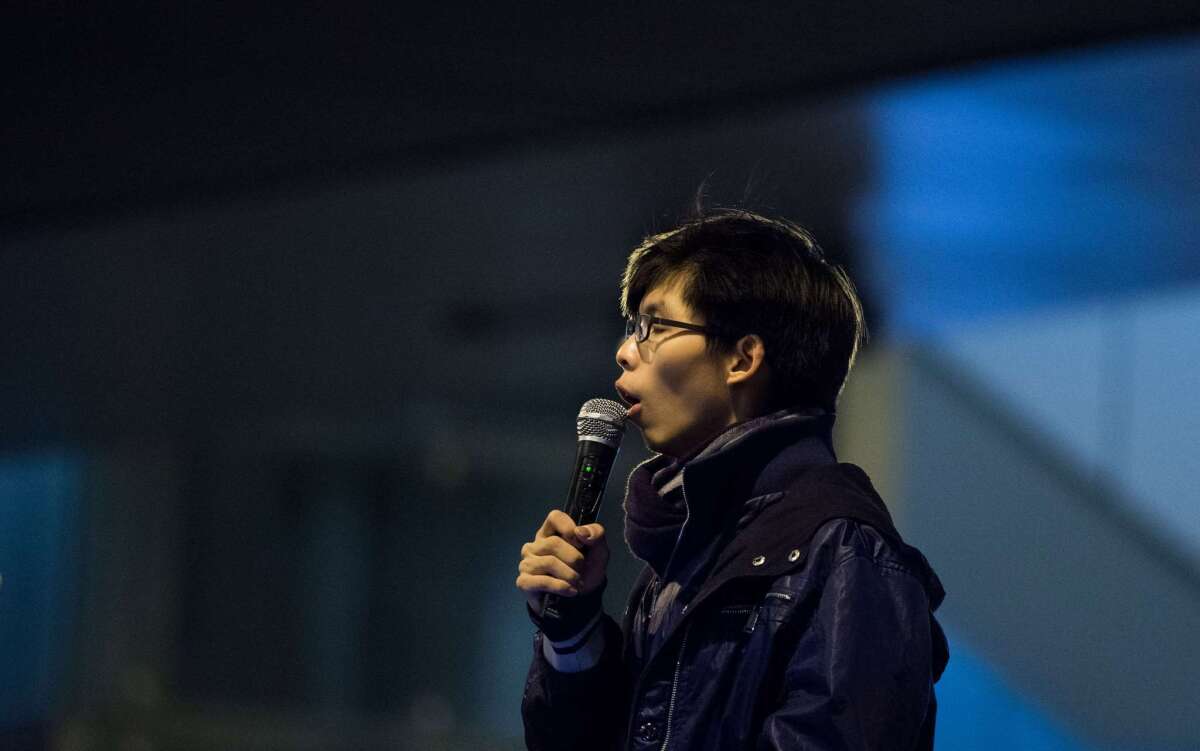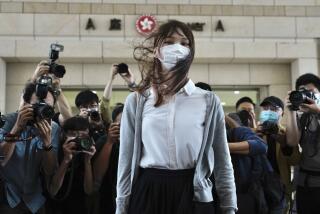Fast end to Hong Kong hunger strike

- Share via
Reportng from Hong Kong — It was a last resort that didn’t last.
Heeding medical advice, Joshua Wong, the 18-year-old who has become one of the leaders of Hong Kong’s pro-democracy movement, ended his hunger strike Saturday after four days.
Wong and two other teenage students started subsisting only on water Monday night as part of their bid to reopen dialogue with the government. The strike was billed as a last-ditch effort to pressure officials after an attempt to escalate action by besieging government headquarters failed Sunday.
“I regret that I can’t last til the last moment,” said Wong, regaining enough strength to take the stage at a rally after a few hours of rest at home.
The other two who started fasting Monday have since quit, with one of them hospitalized Saturday night. Two college students who joined the strike Wednesday are still carrying on.
Officials said they won’t bow to pressure from hunger strikers and would be open to dialogue only after protesters retreat from their encampments.
“We shouldn’t encourage or accept a certain segment of our society to use illegal means to force the government to make concessions ... and to have hunger strikes in order to put forward their requests,” said Raymond Tam, the city’s secretary for constitutional and mainland affairs.
The movement in Hong Kong, begun in late September, has become the longest pro-democracy campaign on Chinese soil. The demonstrations erupted when officials in Beijing published guidelines for the scheduled 2017 election for Hong Kong’s chief executive that critics said would not allow for the free nomination of candidates. Hong Kong was promised a degree of autonomy under the Sino-British Joint Declaration that returned Hong Kong to Chinese control in 1997.
After drawing massive crowds to the streets in September and October, the protests have diminished substantially, although a few thousand demonstrators remain encamped in the Admiralty and Causeway Bay neighborhoods. Holdouts in Mong Kok were forcibly removed last week.
Wong said he hoped that, through dialogue, government officials can be persuaded to solicit the public’s opinion on the electoral guidelines decided by Beijing.
“This is tantamount to repealing the decision,” said Carrie Lam, the city’s chief secretary. “It’s unrealistic.”
Law is a special correspondent.
More to Read
Sign up for Essential California
The most important California stories and recommendations in your inbox every morning.
You may occasionally receive promotional content from the Los Angeles Times.










